Peter Chatel
Nacimiento : 1943-12-07, Bad Segeberg, Schleswig-Holstein, Germany
Muerte : 1986-08-25
Historia
Peter Chatel (December 7, 1943 – August 25, 1986) was a German actor.

William Maybach
A fun journey through the history of the automobile, this film is about a group of future computer hackers that wire an arcade game to work as a time machine. Among appearances in the movie are Henry Ford, Mercedes Benz, and modern race car driver Niki Lauda, as one of the boys becomes trapped within the newly created game. (IMDb)
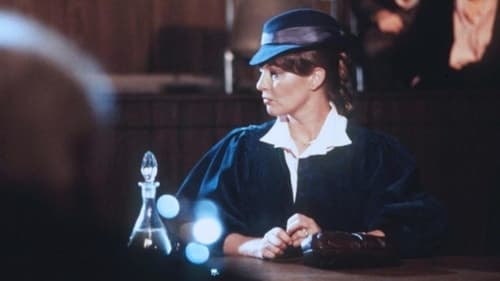

don Angelo
The lives of three generations of peasant farmers in the Emilia-Romagna region of northern Italy are the focus of this unexciting, flat-footed saga by Florestano Vancini. When the grandfather (Marne Maitland) first decides to leave his job of canal-building and move to northern Italy, he takes up work as a peasant on the land of a local priest, while his oldest son Venancio (Massimo Ghini) starts driving a carriage. More of a visionary than a chauffeur, Venancio first gets involved in organizing the peasants into a kind of farmer's union, and when that movement goes under, he devotes himself to educating the farmers instead. Along the way, his mother dies, he marries Mariena (Anna Teresa Rossini), and they have children. Much to Venancio's sorrow, his own sons do not want to stay in farming, and as they grow older, only one remains at home to till the soil. In the meantime, the specter of fascism is growing stronger by the day and the clouds of war being to darken the horizon.

Film extras take possession of a bogus film production company and acting as ideal world of film to persuade one associates mother-in-law of marriage.

Two life stories. That of Malou, a French woman, married to a German Jew, a refugee stranded in South America: a picture of the pre-war generation reflected in the unusual destiny of an individual woman. And that of Hannah, an alert, independent, modern woman, seeking after freedom and her own identity, and trying in present-day Berlin to save her shaky marriage.
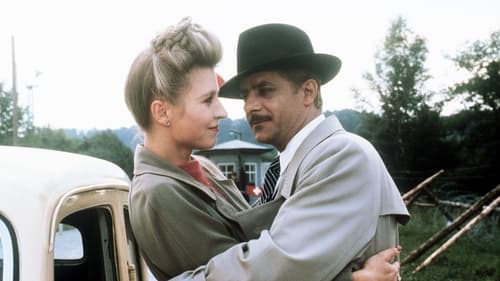
SA-Mann
Lili Marleen es la historia de una canción que, durante la Segunda Guerra Mundial, llegó a convertirse en un himno, primero del nazismo y después del bando aliado. En 1936, Norbert Schultze, un pianista de cabaret, le puso música a la letra que había escrito años atrás un soldado alemán. Tres años más tarde la grabó en disco una bella pero mediocre cantante, Lale Andersen, que consiguió un éxito y una popularidad tales que los servicios de propaganda del Tercer Reich decidieron hacer suya la canción.

Sirmone
A small carnival is in dire financial straits. Their show is attracting fewer and fewer paying customers, as their "attractions" are ageing, out of shape and beset by internal feuds and bickering. One day a beautiful young woman shows up and suggests a way of attracting customers: put on a strip show, with her as the main attraction. Her act attracts customers in droves, but it turns out that the girl has her own agenda, and it isn't to help out the carnival.

Eugen - Reporter
An old lady named Jane, believes she is Tarzan's widow. She wears a leopard skin bathing suit under her black coat when she visits the zoo to talk to the animals, and keeps African mementos in her home. She also has pictures of famous screen incarnations of Tarzan, including Johnny Weissmuller, Lex Barker, etc. up on the walls of her flat, and longs to 'return' to Africa and visit 'Tarzan's tomb'.

Alex
A thriller in which the characters are Latin-American exiles living in Paris. It is also a comedy about artists who play at revolution rather than actually participate in one
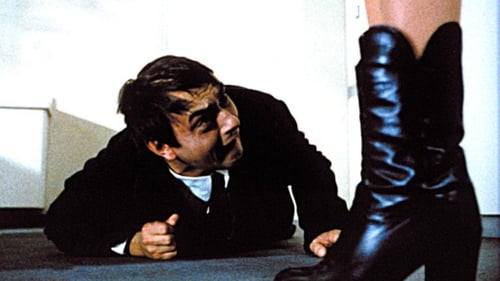
Eugen
Walter, un poeta anarquista alemán, tiene dificultades económicas, pero su editor se niega a darle un adelanto. Entonces no tendrá más remedio que buscar otros modos de ganarse la vida.
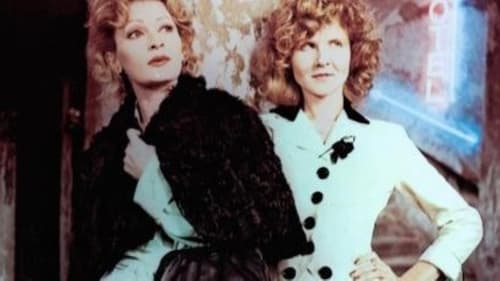
Mann / Thomas
Beautiful, detached, laconic, consumptive Lily Brest is a streetwalker with few clients. She loves her idle boyfriend Raoul who gambles away what little she earns. The town's power broker, called the rich Jew, discovers she is a good listener, so she's soon busy. Raoul imagines grotesque sex scenes between Lily and the Jew; he leaves her for a man. Her parents, a bitter Fascist who is a cabaret singer in drag and her wheelchair-bound mother, offer no refuge. Even though all have a philosophical bent, the other whores reject Lily because she tolerates everyone, including men. She tires of her lonely life and looks for a way out. Even that act serves the local corrupt powers.

Hinzelmeier
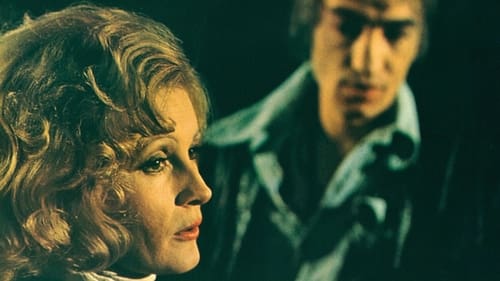
Photograph
Un obrero de una planta química, inesperadamente, en un acto de rebelión, asesina al hijo de su jefe, suicidándose a continuación. Este hecho transformará por completo la vida de su mujer (Emma Küsters) quien, con la falta de apoyo que recibe de un hijo (dominado por su mujer) y de una hija (que sólo busca su propia gloria), iniciará una odisea personal en la que tendrá que enfrentarse a manipulaciones mediáticas e ideólogos políticos que buscan utilizarla para sus propios fines, ignorando la única razón que a ella le mueve: defender y devolver la dignidad a la memoria de su marido.
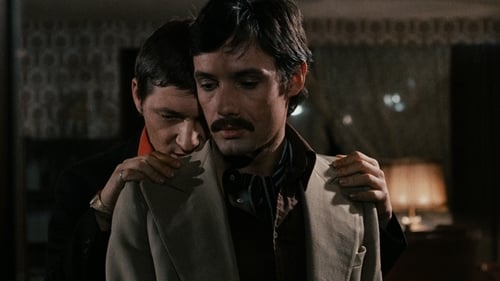
Eugen Thiess
Franz Biberkopf es un joven homosexual, vulgar, ingenuo y bonachón que, después de trabajar como "Fox, la cabeza parlante" en una feria, gana medio millón de marcos en la lotería, lo que le permite frecuentar círculos gays más selectos. En este exquisito ambiente se enamora de Eugen, hijo de un empresario que posee una imprenta al borde de la bancarrota. Eugen, que ha dejado a su amante, inicia con Franz una relación interesada: en varias ocasiones le saca dinero para la empresa paterna, le hace comprar el piso y los muebles que compartirán, e intenta incluso corregirle sus toscos modales tan alejados de la educación burguesa. Además, programa un viaje a Marrakech.

This ethereal, three-hour biopic is the middle film in Hans-Jürgen Syberberg’s “German Trilogy” on the mythological foundations of the Third Reich. By fusing theater, music, and cinema, Syberberg conjures up Karl May (1842-1912), the immensely popular German author, who set many of his adventure novels in an idealized version of the American Wild West. His tales of the cowboy and the Ubermensch alike were beloved by many, including (Our) Hitler, who supposedly ordered his generals to read May works after defeats in the Russian campaign.

Raoul
Nightclub singer La Paloma succumbs to the persistent courting of a chubby rich admirer and marries him. Before the marriage, she was thought to be dying, but soon she is well. She believes her husband's love has cured her, but her efforts to love him begin to fade as she discovers true love with her husband's old school friend.

Kaiser
La bibliotecaria Martha se encuentra de vacaciones en Roma con su padre, quien muere en plena calle víctima de un infarto. En la embajada de Alemania, queda fascinada por Helmut, al que volverá a ver más adelante en la boda de unos amigos, donde surge el amor. Una vez casados, Helmut se impone la tarea de educar a su mujer, a la que ve muy mimada e inmadura.

An African-American GI retires from the US Army in West Berlin to live with his (white) girlfriend, who already has a baby with another black man. After an argument with her family, she deserts him as well. Despite finding a job and a new place to live, he keeps running into racism, which also manifests itself in sexual intimidation.
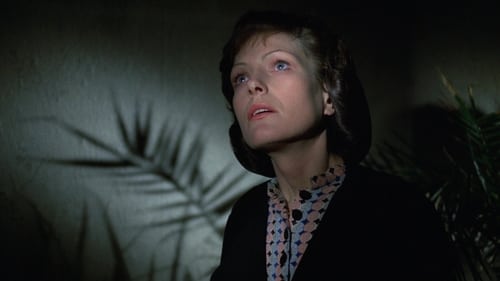
Karl Meier
En 1925, en Alemania, Fritz Haarmann, es un ladrón homosexual y furtivo, con una licencia especial de la policía. Vende carne en el mercado negro. También mata a los niños y jóvenes, bebe su sangre, cose sus cuerpos y tira sus partes en un río. Ciertamente, lo que vende en el mercado negro es carne humana... Nueva reedición de la historia de "El Vampiro de Düsseldorf", acentuando en este caso su trasfondo de crítica social y explicitando sus elementos sádicos, homosexuales y canibalescos.

Master
Satire on 19th-century class relations and thinly veiled commentary on the failure of the 1968 political revolution.
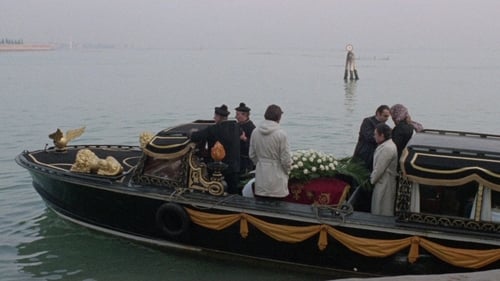
Filippo Venier
Dos niñas aparecen muertas en el mismo lugar donde hace cuatro años fue brutamente asesinada otra menor. Los desolados padres de una de ellas, comenzarán a investigar los sucesos. Muy pronto, las niñas pequeñas dejarán de ser el único objetivo del asesino...

Otto
Tras haber tenido que abandonar la Unión Soviética en 1929, Leon Trotsky acaba exiliado en México. Un agente de Stalin, Frank Jacson, es enviado al país centroamericano con la misión de acabar con él.
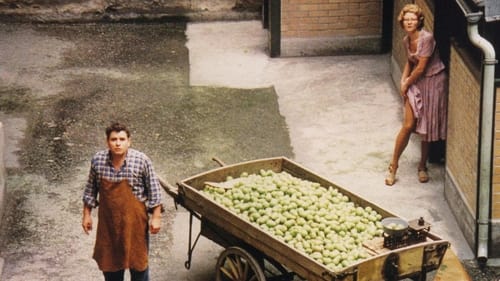
Dr. Harlach
Hans es un frutero ambulante que vende su mercancía por las calles de Múnich. Es un hombre fracasado y que ha perdido la autoestima, entre otras cosas porque tiene una madre dominante que siempre se ha mostado insatisfecha con él. Además, la mujer de su vida lo dejó plantado, y su fría y celosa esposa y su cínica hermana le han destrozado la vida. Su debilidad es tal que se deja arrastrar por la violencia y al alcohol...

Norbert
Un arqueólogo se obsesiona con una mujer plasmada en un bajorrelieve, hasta que se siente transportado en el tiempo...

Guido
Muere fulminada por la corriente eléctrica la titular de una empresa de insecticidas. Sus hijos, esposas y nietos se presentan en la empresa familiar, donde reside el viudo, y se celebrará el funeral. Pero éste no será el único entierro que se deba celebrar...

Alain

Sebastian Wenninger

Günter

Gondoliere Giulio





















